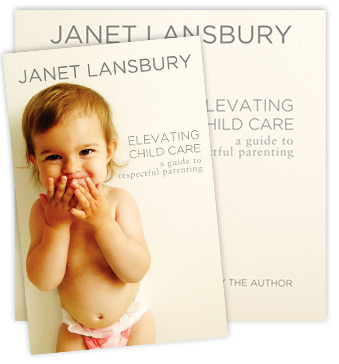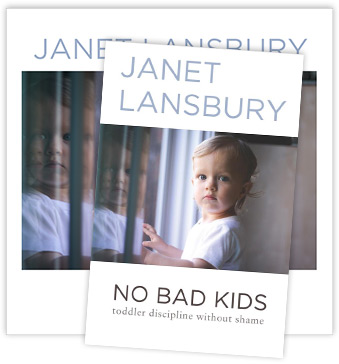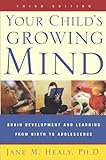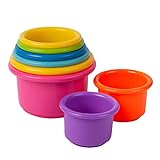Hello Janet,
I write to you wondering how to deal with my very strong-willed and independent 5-year-old. As a toddler and emerging preschooler, she would express very large emotions. I would try to help her name and accept them by saying calmly, “You are feeling frustrated. Would you like to take a break?” If she felt angry or frustrated, she would yell at me, “I’m NOT FRUSTRATED!!!” This was often accompanied by a fit or meltdown, and I’ve always done my best to accept her intense feelings and be present with her. She continues to negate my naming of her emotions to this day.
She has a very strong desire to be right, even to the point of saying, “I’m right and you are wrong!” I’ve tried to neutrally and calmly offer her the language and skills she needs to learn about and manage her emotions, but as she is growing, her resistance to these lessons is growing as well. I know that much of this is normal behavior, and much is also her own personality. I’m just not sure how to respond to “I’m NOT ANGRY!” being screamed at me when I am trying to be a calm, confident, respectful parent.
Thank you for any insight,
Amy
Hi, Amy:
Intense, strong-willed children can certainly be a challenge. They express more feelings, more explosively, more often. This is especially true in the early years and when they experience stress. In the moment, we just want it to end, but just like children whose emotional expressions may be gentler and less dramatic, they need to have their feelings heard and accepted as is.
It sounds like you’re making valiant efforts to deliver that message to your daughter, but some subtle misconceptions in your approach are preventing her from receiving it. I would consider your goal. It might be that you just want her to stop behaving this way, which would be quite understandable! Unfortunately, it’s doubtful she’s capable of controlling her feelings at this time in her life and attempting to do so to please her parents wouldn’t be healthy for her.
So a more positive, achievable goal would be to practice genuinely, consistently and completely accepting the intense ebb and flow of her emotions. Granted, this is a supreme test of your patience and nerves, but when her raging storms are normalized for both of you, your life together will feel more manageable.
Here are my thoughts for addressing some common misconceptions about children and feelings and some adjustments I advise for more successfully handling your daughter’s intense reactions:
Acknowledging isn’t just about words
It’s about connecting with our children — through our words, yes, but also through our eye contact and an encouraging, open, validating tone that assures them that we see, hear and accept them. This does not mean labeling their feelings (I’ll talk about that in a moment). I demonstrate an encouraging tone in many of my podcasts, particularly: Hard to Feel Compassion for Unreasonable Emotions, Kids Saying “No” to Boundaries, and Guiding Toddlers with Connection.
The key to a helpful response is recognizing our motives, which children are almost always aware of on some level. Our motive in acknowledging our children’s feelings should be to connect with them and validate the feelings so that they feel encouraged to share them completely. “You seem angry about that” should be another way of saying, “I’m perfectly okay with this feeling you are sharing. In fact, I want to know and try to understand what’s going on with you. Keep telling me about that for as long as you need to.”
Most of us, however, are inclined to have a personal agenda that is the opposite of acceptance. Our children’s outbursts are uncomfortable for us, and we’d like them to end as quickly as possible. With that as our intention, we might acknowledge our child’s emotions to put a kind of button on them (an “off” button). So when we acknowledge to our upset child, “You’re angry,” the subtext they hear might be more like: “I got it! I hear you, so now you can stop being angry, okay?” When children sense the impatience and lack of full acceptance that we are actually feeling (under the guise of validation), it can be intensely frustrating and infuriating for them.
“I’m not angry!” is just another way of expressing frustration and the response strong-willed children typically have when they sense our discomfort and subtle pushback. What she’s really saying is, “STOP labeling and trying to fix my feelings and just please let me have them! Just let me feel!” So, don’t give her another reason to feel frustrated and angry. If she does make a statement like “I’m not angry!” I would respond with an accepting, “Okay!”
In all these cases, I’d focus on being as patient and accepting as possible, and my inner mantra might be Just let the feelings be; or These feelings belong to my child, not me. This doesn’t mean we should feel held captive to our child while she’s expressing herself. After genuinely acknowledging her, you can move away if there’s something you need to do. The message of our unruffled, nonjudgmental acceptance is what matters.
If we’re doing something about the feelings, we’re not accepting them
Acceptance is a patient, just-letting-it-be kind of attitude. If we sense ourselves wanting to take action – to say or do the right thing – we’re most likely not really accepting, and our children will know that. When we try to show or teach acceptance, we actually demonstrate the opposite: that we’re impatient, uncomfortable, can’t accept, and just want to get it over with.
For example, you shared: “I would try to help her name and accept them by saying calmly, “You are feeling frustrated.” Generally, I don’t advise naming emotions, because when we’re deciding what another person is experiencing, we risk being inaccurate. So I would only label feelings in a question or as a possibility: “You seem very angry about that.” Or as a way to empathize: “It can be so frustrating when that happens.” I would simply state what I know for sure: “You didn’t want me to say ‘no’ to the ice cream!”
It is true that with very young children, our suggestions that they seem angry, sad, frustrated, etc., can help them to learn to identify these feelings and develop social intelligence. But by 4 or 5 years old, it’s best to say very little. When in doubt, relax, breathe, maybe nod your head, but say nothing at all.
You also shared that you asked your frustrated daughter: “Would you like to take a break?” This is a loving attempt to resolve her feelings for her when what she needs is your patience and belief in her that it’s okay to express them completely. It’s what she needs to do at that moment, so taking a break will only postpone and perhaps intensify the next outburst.
Then you offered: “I’ve tried to neutrally and calmly offer her the language and skills she needs to learn about and manage her emotions.” Again, you’re in action here when your daughter needs more of your acceptance and trust in her process.
Children can’t vent their feelings in a reasonable, analytical manner.
Feelings are often unreasonable and can’t be expressed through words alone. So rather than naming her feelings, calmly hear and accept them at full strength. Rather than questioning or correcting her need to be “right,” accept and rise above it. Rather than offering her a break or other tools for managing her emotions, trust and fully accept her intense responses and over-reactions.
“I know that much of this is normal behavior, and much is also her own personality.” I would trust this voice. This is where you’ll find confidence — your perception of these outbursts as perfectly normal for your daughter, rather than something to fix or manage. This will help her to accept them as well. It begins with us.
Basics for understanding our strong-willed children:
- They need to vent their strong feelings regularly.
- Intense, emotional reactions to even the most minor disappointments are to be expected. What might appear to be a crisis is, for them, a healthy explosion.
- Blasts and meltdowns need to be allowed, normalized, and even welcomed, not punished, calmed, or fixed.
- It isn’t helpful to attempt to direct them to control their emotions. They do so as their brain matures and through our modeling, acceptance, understanding, and patience.
- They need us to rise tall as strong, confident, benevolent leaders, not get caught up in squabbles, ride along with them on their emotional rollercoasters, or take their blasts personally.
- Know that on the other side of this “coin” is positive power, accomplishment, leadership, much that will make us proud. We’re likely already seeing some of that and there’ll be many more surprises to come.
I share more advice for handling our children’s strong emotions in my books
Elevating Child Care: A Guide to Respectful Parenting and
No Bad Kids: Toddler Discipline Without Shame
And here’s one of my podcasts on this topic:















So helpful! My son is very strong-willed and these are excellent points. It’s really hard to do it in the moment though – I find I have to be very mindful and aware in these times which is hard when you’re getting home from work and trying to make dinner! I would also recommend the book The Difficult Child. It has a lot of specific examples based on the various temperaments. It was really helpful!
Thank you, Sarah! Yes, it can be hard to let go and just let the feelings be. That’s what I would focus on, rather than trying to be too mindful and aware.
I’m not aware of that book but will check it out. Thank you for sharing!
I had a strong willed child, didn’t think I would live through it! He’s 35 now, a great “kid”, the pediatrician told me that a great quality to have, no one will ever talk him into doing anything he doesn’t want to do
Great post, Janet. Thanks! I have an intense sting willed 3+ year old and there are two variations to this scenario I’m curious about, if you would have time to address:
1. What about if you are in public (birthday party, play date, market, etc) and your child needs to have an outburst or melt down? My instinct is to take him to a quiet, safe place, but does this convey impatience and non-acceptance?
2. My son often will start hurting his younger sibling or even our dog if he is feeling hurt, scared, jealous, etc. What are some ways to keep everybody safe without abandoning one or the other?
Thanks, Sara!
1. No, that wouldn’t convey impatience, unless you were feeling impatient 🙂 I see moving your child to somewhere more private as respectful and loving. If I were freaking out at a party, I would hope you would help me not to have to do it in public!
2. The ideal would be to slowly go over and be there for him, blocking him from doing harmful things while acknowledging his desire to to them. “Wow, you feel like hurting the dog right now. You’re showing me you need my help stopping you.” This is typical, emotionally fueled behavior and, if possible, I would treat it as such. Just let him know that you’re there to keep him safe and still TOTALLY in his corner.
HI Janet, I have heard so much about your blog but haven’t gotten around to browsing through it. I do love this post as I can totally relate to it having a very spirited/strong – willed almost 3 yo. She is adorable, very intelligent and verbal considering her age but she’s very sensitive and would have regular outbursts like what you describe on a daily basis. Now, some of my questions have been partly addressed by your answer to Sarah U’s comment but would like to seek advice on the following:
I follow roughly your approach about acknowledging her outbursts and feelings, which I follow up with asking her if she needs a hug from Mama. The thing is I don’t have unlimited time at my disposal now as we also have a 9 month old baby boy. I find myself talking to her, hugging her and then suggesting to her to stay by herself until she calms down. The last part though makes her upset more and prolongs the outburst. But I really have a lot on my plate now and don’t feel good about having our younger baby cry and wait until our daughter calms down. How can I best deal with this? Thank you in advance.
PS. Oh I forgot to mention that she too sometimes could not help pushing/shoving her little brother when she wants to cuddle with me during her outbursts. She is in principle a very loving sister and not jealous at all but when she feels emotional she unintentionally hurts her brother. I would also like to add that I’m a stay-at-home mom and usually have no one else to help me with the kids at daytime. This really means if I devote my 100% attention to my “raging” daughter my younger son would usually be left alone crying too. He does play well by himself so he can be left alone once in a while. But when he sees her sister crying he starts crying too and suddenly want my attention too.
We are really trying to enforce gentle/positive parenting approach but when two kids seem to be crying whole day long (perceived) it’s sometimes hard not to lose it. I hate yelling and time outs but I just don’t know how to divide my attention between the two kids.
My 15 month old boy is similar. If we are in public and he starts up I tell him that I won’t let him hurt others or break things and then tell him we are leaving, then physically remove him to a quieter place. It’s easier for everybody that way. I don’t feel it’s a bad thing to do, he seems to be glad almost immediately after we leave most times.
I do the “removing from the situation” as well, but I am careful to frame it as “Let me help you process your feelings in a quiet space with just me as your ally” rather than “You are embarrassing me in front of these people so we’ll deal with this privately.”
I can always tell he is relieved when we are out of other people’s view, and that it strengthens our bond. And when we come back, all calm and happy, I feel proud that I remained in my son’s corner despite the not-so-comfortable situation.
I was doing the SAME thing! I swear I read that, about labeling feelings! I must have misunderstood, or just got bad information. Thanx, this approach sounds much more reasonable.
Glad this helps, Wendy. Yes, labelling can tend to be diminishing.
Hi Janet. I’m finding your advice so helpful. I have a VERY strong willed 2 year old boy who is also VERY physically strong. I’m a single mum and I really do acknowledge and adore how wonderful it is to have such a determined and spirited child but it is physically and emotionally exhausting most of the time right now. We are currently house sitting for friends and looking after their two cats. Initially my child was very calm around the animals but now he’s started pulling the larger cats tail. If I say ‘no’ or even calmly say ‘gentle’ he grabs the tail tighter. If I try to pull him away from the cat he has a meltdown and holds on tighter. I have a screaming cat and a screaming child. I literally have to pry his fingers off the tail as he kicks and screams and tries to pull harder. It’s really awful as I know he could be really harming the cat. I model gentle patting constantly but it’s not working. I don’t know what to do. The house is open plan so The only separate space is the bedroom.
I could have been the person who asked the question. This is me to a T. I empower by discussing, I feel guilty, I feel bullied, and I get absolutely upset, and but I also get unravelled. So this article will help me immensely.
the other thing that is happening with my 4 1/2 year old is that she goes from zero to 100 in just a few seconds, and it almost always becomes violent. She hits / kicks and tries to bite me. So what should I do about that, when it becomes violent towards me, or towards her big sister, and her father.
Thanks!
Wendy
Best would be to be there to, as calmly and confidently as possible, block and contain her actions. Imagine a person so lost in her impulses that she’s behaving in an unconscious manner. She needs our help, but not our judgment. She doesn’t want to be that girl.
My strong-willed child is now 18:) but I realized as time went on how much my own energy (discomfort and overwhelm) interfered with and added to her outbursts of emotion. Establishing my own practice of regularly grounding and centering helped me from getting overwhelmed (mindfulness/meditation, yoga have been life changers- it’s the regular habit more that the amount of time spent). I also reminded myself that I could be in the presence of (____…fill in strong emotion) and not make it about me. Followed by a few nice deep breaths. Those words help me even now when I’m in any situation where others’ strong emotions feel hard to handle. The more she FELT me as a calm, confident ally and leader, the easier it was (still is, sometimes) for her to move through her experience of strong emotions.
I think it is also worth noting that these sensitive souls also need our leadership with simplifying their lives. These days it is easy to be involved in a lot and some children are less able to manage the pace and potential overstimulation of the day/week. Less activity and more self-directed time outside is beneficial for all children.
Your insight and wisdom, Janet, and generous sharing of Magda Gerber’s wisdom, is a real gift to young parents.
Would this info apply to an 8 year old as well? He has struggled with this for a long time. And although I had good intentions, I’m sure I have made all his jealousies of his brother and struggles so much worse by my lack of emotional intelligence and my anger toward his mean words and or hitting at times. There is a 4.5 year gap between them and my older son has struggled with jealousy so much despite my intentions to help him feel loved. He hits his little brother back and im not always calm about it. I wish I were. We want to be the best for our kids and the guilt of being far from it is so real. I wish we all had the skills and patience of you Janet.
Thank you so much for this post! I’ve been dealing with some intense emotions from my 4.5 year old and it can feel so confusing! I wonder if it’s normal or what am I doing wrong? I think she is just very strong willed and quite willing to stand up for what she wants! Thanks for the reassuring advice!
Great! Yes, I would absolutely trust her as perceive this as normal for her stage of development.
Thank you, Janet. Each time I haven´t read your articles for a few weeks or months, I find myself forgetting so much of your approach.
My 4y old daughter is a very strong-willed child, too and is “miffed” very often, when things to not happen as she wants to.
My biggest problem at the moment is that she is yelling as loud as she can which is really shrill and hurts in my ears. It´s really hard just to accept that and let it be, especially when it is done in public 🙁
Janet had a podcast episode about this! Perhaps you’ll find it helpful?
If she’s doing that out in public and it’s possible for you to leave the situation, I would. It could be that she’s tired or hungry. But what will help most in the bigger picture is for you to perceive her responses as completely normal for her for her temperament and stage of development and relieve yourself of any responsibility to try to fix or calm her down. When her reactions don’t grate on you or worry you in any way, they will happen far less often.
I read all of your posts Janet but never comment. I just want to say this is working for our family 🙂 @We have been trying to follow these guidelines with our 15 month old son. It came about naturally as we wanted to let him have his voice and realised our idea of supporting him during these big moments (labelling his feelings, talking too much, trying to comfort him to rush him into feeling ok again) was upsetting him even more. Now we try to follow his cues to give him space or a silent cuddle. He lets us know what he needs from us. I love seeing the calm he brings himself to after his storms! Learning more about mindfulness practices recently has helped me to stay calm and patient, which makes it easier to not take things personally and to allow him ownership of his feelings.It’s not easy though and we definitely don’t get it right every time. We are hoping this will help all of us as he gets older though as we love this about him ~ his independence, confidence, determination, strength, passion, and don’t want to stamp these attributes out of him for our convenience. Thanks Janet! Your posts help us to stay committed RIE and respectful parenting 🙂
Woohoo! Well done! And YES to: “We are hoping this will help all of us as he gets older though as we love this about him ~ his independence, confidence, determination, strength, passion…” That has been my own experience with a strong willed daughter and also that of the many families I’ve worked with (over the last 20 years). All of this immature blustery-ness will eventually be harnessed into positive power and ability if we can trust our child’s emotional process.
Thanks Janet… always love your wisdom!
I have a very strong and spirited 4 year old boy, who has a 7 month old sister, so he has had some significant change of late! I have noticed for the last 6 weeks or so, that whenever I pick him up from daycare he begins to behave in a very “wild’ way (ie. running around, shouting loudly, laughing hysterically, throwing things…going “a bit crazy” – in my words). Sometimes he is quite rejecting of me, ie.won’t look at me or acknowledge I have arrived. His daycare educator has noticed it too. She said he has been pretty chilled all day and then does that at pick up time. Today he did it when the other kids parents arrived, before I had even arrived. And it seems to happen regardless of whether I bring my daughter with me or not. He used to love to see me when I arrived and greet me with open arms… any thoughts on what it’s about, and what I can do to help him during these transitional moments? With much gratitude x
Sounds like your arrival is his cue to begin unraveling (with his beloved parent) after being at his best all day. That’s as it should be! I would try to welcome the madness, while confidently moving him along into the car. I wouldn’t wait for him to be ready or repeat any directions you give him. Be prepared to usher him through this transition with positive momentum, while acknowledging, “You don’t want to go just yet! I see that! It can be tough to leave.”
That sounds like a version of what my now four-year-old son does: when I try to empathize during these “moments”, he sometimes shouts “STOP TALKING!” or “I’M NOT LISTENING TO YOU!” I was struggling to understand quite what was at stake, but it’s much clearer now. What a helpful post.
Janet, you bring us SUCH CLARITY! Truly, you are the Number One influence on my parenting style, and we are a much happier, more sane family for it. 🙂 I think of you and your teachings every. single. day, and thank you from the bottom of my heart.
Aww, thank you for all your encouragement, Camille. I’m thrilled you’ve found my advice helpful!
Hi Janet, this makes a lot of sense with a young child, but when do they start learning to express their strong emotions in a more mature way, if we’re not helping them learn that skill now? I don’t want my intense and sensitive son to end up directing his emotions inward, like I did, so I try to let him express them, but I also don’t want him to be screaming whenever he doesn’t get his way ten years from now! I think this is mostly just worry on my part since he’s my oldest, but I am struggling with how to teach the distinction between the feelings which are good and ok and the expression of them which often is not (screaming at me or his younger brother, usually, which then makes his brother scared and upset).
Also, thanks for the affirmation that it is ok to leave after acknowledging the feelings, and continue with what I’m doing that needs to be done – since I have another kid, it is good to know that I don’t have to be tied to the one who is losing it.
Hi Kristin! It might help to consider how children actually learn, which is through our day-to-day modeling. It’s not about what we tell them to do as much as what we actually do. I can understand your concern, but I would try to let it go and trust your son’s development.
I would also question whether your son’s behavior actually scares his brother or if that might be a bit of a projection of your own concern. Generally children understand when other children have strong emotions, though it can be very scary for them to experience their parents having strong feelings. Children need their parents to be as solid as possible, so that they can be the wobbly immature ones. When they don’t feel that sense of security, they will impulsively need to keep pushing us to get it. That is why it is so important to come from a place of trust, and just let the feelings be.
Thank you so much for your supportive advice. I am having trouble balancing our 4yo, 3yo and 9mo. Our 3yo is very sensitive and “explosive” when he is emotionally flooded. He has a difficult time when I focus on the other children (which is understandable). But I see we have landed ourselves into a cycle. He becomes stressed when I am cuddling or reading to someone else, he begins to fall apart and 1) I am pulled away from the other child to be present with him OR 2) I remain with the other child and calmly allow the storm to wash through the room which means the child I was sitting with spends their time sitting with a screaming child (this is stressful and difficult for the other children). So instead of a brief connection time, we wind up with either no time together, or a time filled with screaming and ending with needing to move into something else to help everyone re-balance.
I guess my question is, do I stand up and come close to him possibly removing him to a quiet place and sit with him (which is what he most wants) or do I hold my ground and boundaries for the sake of the other children and allow him to remain with us, still occupying my full attention?
I would work on holding your ground, trusting your boy to express all his fear around this huge transition to being a big brother. In my experience, children — even infants — have an innate understanding of strong emotions and outbursts. But if you are not comfortable, it will be harder for everyone. So, again, I would work on trusting and getting comfortable with this healing dynamic.
Thank you Janet! I find your insight into slightly older children invaluable. I especially needed this one. Please keep these posts re 3+ coming!
I’ll try, Erin, thank you!
Thank you so much for responding to my question, Janet! I am by nature an impatient person, and although I have been making much effort to become more patient since even before having my children, I still struggle with it and am not always aware of how I am displaying my patience level with my children. I do wonder how long I will have to live with regular outbursts before she becomes more able to regulate her emotions. Can you please direct me to a timeline or resource where I might find out when I can expect her (within reason) to better regulate these strong emotions/better display them? Thank you!
You’re welcome, Amy! Sorry, I meant to contact you to let you know I’d responded, but hadn’t yet had the chance!
Hmm… this wish to get to the end is exactly what’s getting in your way. 🙂 I honestly don’t think there’s a timeline anyone could give you, but one thing’s for sure: the more patient and accepting you are, the sooner she will develop self-regulation. Like many other aspects of parenting, this is an exercise in trust. Sorry not to have a better answer for you!
Hi, I think there’s a lot of great stuff in what you’re saying through this website, but this kind of reply is not all that helpful, because you also say things like “This is to be expected at this age/stage.” Such bad behaviour is certainly not expected of an adult, so how can we (as parents) get an idea of when such behaviour changes from “to be expected” to “this is a problem”? What are you basing that expectation on? How can we (as parents) set our expectations appropriately for the age/stage our children are at?
I would need to know more about what you mean by “setting our expectations”. Do you mean that at a certain age you would disallow anger or punish a child for yelling? Children learn emotional self-control as the prefrontal cortex develops and through our modeling, but that doesn’t mean they don’t ever lose their temper past a certain age. Building an loving, attuned, and unconditionally accepting relationship with our child is the most productive way to ensure their healthy emotional development and good character. Constant dysregulation is indicative of extreme or chronic discomfort and fear.
I really enjoy reading these question and always feel enlightened by your responses Janet. In this case I am curious about this approach and teaching the child how to treat others/ how to function in society. Would not this approach be showing the child that it is acceptable to scream and act out in anger or violently towards other people? If I was behaving in this way toward people I love I would not want them to stay and affirm me. I would want them to take care of themselves. How does one acknowledge big feelings for what they are, but at the same time be clear about what behaviors are unacceptable?
I cannot represent the wonderful author but I would like to address this topic. I do not think the approach spelled out here teaches them it is okay to have those outbursts and be demanding. (Though the goals is to say it is okay to have these strong feelings.) By being there for them and acknowledging what’s upsetting them without changing reality, we teach them acceptance of the situation and resilience, not free reign over other people which will happen if you try to “fix” bc the child will keep feeling “I’m upset because something is not going my way and my parents seem anxious about it too and want to change things. So they better buy me that toy!.” But if you follow the approach here you say “you really want the toy” and simply let her express her emotions, she accepts this is not going to happen and moves on. By not suppressing her emotions you teach compassion which she learns when she experiences it, not asked to have.
Beautifully said, Rhi! Thank you so much!
Thanks, Maggie. I love Rhi’s response!
I’ll respond to this, which I find very interesting: “If I was behaving in this way toward people I love I would not want them to stay and affirm me. I would want them to take care of themselves.”
Yes, this is definitely about taking care of ourselves and other children that might be hurt by an aggressive outburst. Physical behaviors would definitely be blocked and contained. If screaming was too loud, we could put our hands to our ears (though I would do it nonchalantly). But beyond that… When you were unraveling and had lost all control, would you wish to be screamed at? Or shamed or shushed? Sent away? Would that be helpful to you? Or would you prefer to get to the end of your tantrum with understanding people and realize… “Wow, I just lost it, and these people understood that I didn’t mean to go to that place. Now I feel even safer with and closer to them. I am okay. I am loved.”
And then you would find that you only rarely needed to go to that place again.
I just discovered this blog and am so happy. I love Naomi Aldort’s teachings written out in Raising Our Children, Raising Ourselves. This blog has a similar tone and I am glad to see so many specific issues addressed. The article already does a thorough job addressing the problem and offering alternatives but I would like to add maybe by rephrasing.
Children are highly sensitive about them having their own experience and sense of self. When you label the child’s feelings,adults can see the attempt to let the child know you are empathizing and understanding but she may feel patronized and controlled. When she says “I’m not frustrated!” she is effectively saying, “let me make my own decisions on what to feel and how to feel and express it!” you also do not need to add drama(there is a wonderful article about it if you want to know more). So just being present may be enough. Acknowledging the facts as Janet has written will also be enough validation. “You wanted to play and I made you stop.””you wanted that ice cream and it dropped on the ground.”
I could have written this, my daughter is the same age and the same in personality. The only difference is what I don’t know how to deal with. My daughter gets violent when she is not allowed to do what she wants. The wording “I wont let you” comes across to her as a challenge. Her response is almost “wanna bet?” (not verbally but she doubles down on her attempts, which usually ends with me getting bit or scratched or hit.) How do I help her with her big emotions when they explode out of necessary boundaries?
I wouldn’t say “I won’t let you” with a child this age. I would focus your energy on breathing, staying calm and containing your daughter’s angry behavior. That might mean holding her wrists if she’s lashing out at you and holding your knee up so she can’t kick, etc. I wouldn’t say much of anything. Just protect yourself, stay calm — know you CAN handle this — and wait for the storm to pass. If you feel like you can’t contain her actions with calm, loving authority, than you might need to move to a place where you can put a gate or door between you. But if you do that, I would move as calmly as possible, so that she doesn’t get the impression that she is easily able to overpower her leader. When she consistently learns that she has a safe leader, her behavior will cease.
I can’t speak for Janet, but one thing that has helped my kiddo is to redirect. If she’s throwing things that break, I’ll grab a pillow or a stuffed animal and swap it for what she’s trying to throw. I’ll say, “I can see you feel like throwing things. I can’t let you throw that bottle, but you can throw this pillow instead.”
Same kind of thing for when kiddo does something to express her rage physically, like flailing or hitting herself. I say, “Okay, I can’t let you hit yourself like that, but you can punch this pillow as hard as you can, like this. That might help you get some of the mad out. Let’s punch this pillow together.”
A role-playing demonstration when she’s feeling calm of me showing her how she can throw her stuffed animals or pillows in a designated area, or punch and kick her floor pillow, or stomping a foot if we’re not at home, helped her get the idea of which actions are acceptable strategies for dealing with her very big toddler emotions. Then, when she’s furious, it’s just a matter of herding her towards those acceptable strategies.
She’s started to be able to find them on her own now! I can ask her, “Do you want me to help you get to your calm-down corner?” and she’ll actually say yes, because she knows it helps her. Then we’ll go and she’ll throw some stuffies, punch some pillows, take some deep breaths, and blow on her pinwheel for a while as I sit near her and look on supportively and without judgment, and then she’ll give a shaky sigh and come and sit in my lap and get a hug.
I’ve definitely started to see how giving my daughter some avenues to throw her normal toddler fits isn’t going to encourage her to become an adult who rages at friends and family. I can see now how an adult who rages at friends and family was probably actually once a toddler who never learned any strategies for effectively dealing with overwhelming anger.
Hope this perspective from someone who’s watched this approach start to work lends a little insight to the process that Janet is talking about!
(I should add that my daughter is just shy of two, so phrasing and approach might need to be modified for a 4.5 year old.)
I love hearing about life skills like connecting to my child, being there and receiving emotions not as a call to actions. I read your articles little by little to have time to truly integrate- instead of studying for a parent test
One thing I can’t wrap my head around about meltdowns. What is the difference between an accepting and listening parent and a passive parent who accepts any behavior? I sometimes feels lost and helpless like, I should be doing something more! I feel passive about this!
I’ve seen parents setting no limits and being walked all over by their children, like some kind of parent guilt that looks like the parent is not a confident leader but subservient to the child’s every mood.
Hi Anne – “One thing I can’t wrap my head around about meltdowns. What is the difference between an accepting and listening parent and a passive parent who accepts any behavior?” The difference is that the accepting parent doesn’t necessarily drop everything to help their child through every emotional reaction they have to a limit, etc. Accepting means allowing children to disagree with our choices (in the vociferous manner in which they commonly express their feelings). Limits are very, very present in this approach, but children deserve to be able to say they don’t like the limit, right? To raise emotionally healthy children, we must be okay with all of their emotions. Acceptance is completely different than being “subservient” or “walked over”.
Thank you for shining some light about the difference. I just read another of your article ‘Repairing Relationships w our children’ which also resonates with the issue I raised up here. My question speaks more about my putting into practice the ability to trust my child (than acceptance or being walked over). not fix, change her emotional reaction. Which was far from being modeled for me as a child. It is good, thrilling, risky, undone to be able to learn alongside her, to trust them while learning to let go of a strong call to action from my part.
I’m interested in the transition from freak out to “normalcy”. I have 3.5 year old and a 9 month old sons, and currently I’m single parenting them as my husband travels for work. My older son is expressing a lot right now (daddy is away + kitchen reno + sibling stuff + me learning how to be a calm confident leader) and it’s coming out in ways that are sometimes tantrums/meltdowns (atypical for my son but frequent right now).
He wants his baby brother close… enough to elbow while he plays. Just close enough to knock over before I can put my body or hands between them. When I speak firmly but calmly and say ‘Don’t push your brother (after the fact)’ it leads to another push moments later. It has escalated so today when this happened in a way that felt too rough for the baby I picked up my older son, placed him in the living room (we were outside), and sat in the doorway confining him in there while he proceeded to kick/scream/throw all kinds of things (at least he listened when I said don’t throw them at me!). He cried a long time, then calmed a tiny bit, and said ‘i’ll troll myself’ (meaning- i’ll control myself) because he wanted to go back and play. He didn’t appear to me to be ready to go back near his brother and the toys they both wanted. So I kept him for a bit longer.
But I felt suddenly confused- I do want to calm the meltdown in the sense that I don’t want him to return to play with his brother until it feels safe. But I also don’t want to punish him– and maybe he is doing his best to ‘troll’ himself.
So how do I know when to let go of holding a space for him to vent, if he’s trying to express self control?
Today, I held the space a bit longer, then let him return. Unsure of the next flow of events however I removed the baby from the play area.
In the background of this dilemma, I’m frustrated with the repeated pushing of brother with elbow. Calm doesn’t seem to be doing it and I can’t be close enough all the time to prevent the elbowing/pushing. I want baby to feel safe. Help.
This sounds exactly like our situation. My 3.5 year old and 10 month old can sometimes play very well together (or in the same space) and then I let my guard down and my oldest has pushed the baby, or hit him, or “carried” (meaning more like thrown) him our of her space. If it happens once, it’s usually going to happen a second time and usually ends in a meltdown. Does this mean I can never let them play together? If I’m making lunch should I lock the baby up so that he can’t get near his sister and risk being hurt? Can they only play near each other if I have my hands in between them?
At the same time, often what she wants is for him to not play near her anymore so by separating them isn’t she then just getting exactly what she wants? It’s so frustrating and I will admit I have lost my temper. Its very hard to accept that one of your children is willfully hurting another. Yesterday she picked him up under the arms and threw him face first on the floor. I was three steps away getting out art supplies and by the time I turned around I was too late to stop her. I felt awful, and yelled, and then felt more awful. Then had to try to calmly handle her subsequent melt down with a sobbing baby in my arms and no patience left whatsoever. I sometimes feel like I need to be some kind of super human powers to be able to deal with these situations.
Your podcast on “Kids saying no to boundaries” was really helpful. My daughter is a loving yet strong willed 7-year-old starting 2nd grade this year.
As a parent, I’m on board with implementing your suggestions and agree that my child should be able to express herself, however, her behavior at school is not understood or accepted in the same way. I’m struggling with my child coming home from school frustrated because she is told that she can’t behave “that way.” Overall, she’s a good child and a good student but she has been labeled as a child with outbursts, defiance, and disruptions. How to we transfer your ideas to the school environment? How do I explain to my child that things may be different outside of the home? I don’t want to go through what we did last year…
Do you have any idea why she is disruptive and defiant at school? I would do all you can to effectively handle this behavior at home so that she doesn’t bring it to school.
I wonder what “respectful” means in the context bcoz I am writing from India. So many of your responses seem to be coming from adults who are themselves.. “don’t knw wht to say” so I feel much more connected to my 3 yr old daughter while her mother is often stuggling to manage. LOVE ’em more and do some self-Love before that!!
Hi Janet,
I’ve been reading your posts for years and have been having good success with them. Where I’m a little stumped with my almost 4 yr old very strong willed daughter is surrounding bed time. We have a great routine, good connection, etc. As the time is approaching for me to leave I let her know how soon I’m going to leave. She’s fine with all of it until we hit the 1 minute mark that I’m going to leave. Then she gets all clingy, says she doesn’t want me to go etc. I acknowledge she wants me to stay and say I have to go it’s bedtime. Then as I’m leaving we do her little routine that she created that she has communicated she wants where I tuck her in, hug, kiss and she tells me 1 thing (what she wants for breakfast and to do in the morning). Goodnight, I love you. I walk out of the door.
9 times out of 10 she then melts down, screams for me, wants to tell me 1 more thing. And loses it. I get the part about being with your kid and their big emotions. Screaming etc. But if the boundary that is being set is that I’m leaving and what she’s upset is that I had to go. How can I be present and be with her when what’s upsetting her is that it’s bedtime and I’m now gone. She then gets hysterical crying almost to the point of throwing up, starts banging on the door with books. Begging about how he needs a friend. I don’t know the balance because I don’t want to isolate her and have her sit in your big feelings, but I also feel the need to stick with the boundary of bedtime.
Can you sit with your child while she falls asleep?
I certainly have a strong-willed daughter (7). I run an in-home day care (family day care) in Australia. Yesterday my strong willed daughter raced a three year old (in my care) to the front door and declared that “she won”. My daughter is aware that this little boy often becomes very angry and distressed by this behaviour and appears to take pleasure in evoking such a powerful response. Do I ignore this and acknowledge the little boy’s distress? In this instance though, my daughter didn’t get the usual response. Instead the boy declared that he had won. This provoked an enormous outburst of angry and distressed emotion with my daughter screaming in the little boy’s face. Naturally the little boy was equally distressed and starts screaming and crying as well. This happens a lot. On some days it happens when I have children with sound sensitivities or the children are simply distressed by the strong and prolonged outburst of emotion. And when I have acknowledged the emotion then tried to walk away because I have a lot of things to do, it provokes more violent expressions of emotions.
In another case, the three year old often does not want to walk down to the school for pick ups and will refuse to walk, standing in the foyer of my house in tears because I cannot put him in the pram with the babies. When I acknowledge his feelings it seems to make him feel justified for feeling upset about walking and he starts crying afresh but I know I’m trying to get him to calm down and walk with us so I know I’m not acknowledging in the right way but when time is short and you have to get something down quickly it is hard not to try to do what you can to move past the strong expressions of emotion. Any help is appreciated, especially regarding the way my daughter expresses strong emotions as a form of attack on other children.
Also meant to say that when this happens often everyone in the house or car starts screaming and crying.
Thanks for a great post! We have a very strong willed and spirited 4yo girl, with strong outbursts and meltdowns. I’m trying my best to implement your teachings, and succeed sometimes, while other times I find myself “trying to fix ” the emotions, usually when I’m tired or need to go somewhere. But I’m working on being consistent.
However my husband is not agreeing with this, he is very uncomfortable with the strong feelings and screaming, and can’t take it, he just wants it to stop, to have peace and quiet. And will then either give in and give ie the ice cream , or try and bribe so she’ll stop, become impatient with her, or he’ll start yelling at me for not doing anything about the situation and “letting the poor girl cry”. I’m trying to explain that this isn’t a healthy and a good way to solve it, and he understands that deep down, yet continues doing it.
I guess it’s also confusing for our daughter that we handle this so differently, and I really wish I could get through to him. Any suggestions?
Can add that he’s a wonderful, loving and fun dad otherwise, it’s just the big emotions he can’t handle…
This is eye opening. I have a 4.5 year old, 3 year old, and 5 month old. I stay home with my kids and when my 3 year old throws a fit I try to see if I can help but if he just needs to scream that’s fine… but I usually ask him to scream in his room, or help him get there. Should I just let him scream where we all are? Sometimes I’m holding a sleeping baby or nursing the baby and the tantrums are just so loud, ear piercing. Bringing him into his room doesn’t help the situation it just makes it a little quieter. He is a very sensitive child so I don’t want him to be hurt by this constant shutting out of his feelings. But I’m at a loss & don’t know what to do now that I see this isn’t the best thing to do. Thanks so much.
I whole hearted agree with your philosophy and able to follow it often when I am one in one with one of my kids. When there is two it becomes very difficult and with all three together it is near impossible.
Could you please write a post about how you can maintain peaceful parenting with 3 small very willful children and get anything done in my day.
Thanks.
Hi Gabby – I think you must be misunderstanding my advice. This approach is the opposite of labor intensive and works beautifully with siblings and multiple children. It is about understanding and accepting our children (and their feelings) just as they are. It is not about working to fix the feelings, or riding waves of emotions with our children (all of which would be exhausting and next to impossible with even ONE child). 🙂 I do have a couple of podcast specifically about caring for several children and balancing priorities, etc. Here’s one and I hope it’s helpful: https://www.janetlansbury.com/2015/11/outnumbered-managing-sibling-conflicts/
Thank you for reading!
Hi Gabby – I think you must be misunderstanding my advice. This approach is the opposite of labor intensive and works beautifully with siblings and multiple children. It is about understanding and accepting our children (and their feelings) just as they are. It is not about working to fix the feelings, or riding waves of emotions with our children (all of which would be exhausting and next to impossible with even ONE child). 🙂 I do have a couple of podcasts specifically about caring for several children and balancing priorities, etc. Here’s one and I hope it’s helpful: https://www.janetlansbury.com/2015/11/outnumbered-managing-sibling-conflicts/
Thank you for reading!
Okay, but how do you help a child who is having those explosive reactions when you’re around other people who don’t understand that the child /needs/ to be allowed those reactions & feelings time to proccess? And is there any hope? Do they grow out of it? I’m not going to have a 16yo who’s screaming at the top of her lungs at me over me moving something out of the way.
I really enjoyed this post. My little girl is similar, and has strong emotions. Often these result in her hitting me or throwing things at me. I do welcome her feelings and would really like her to feel them completely, and perhaps cry, but her feelings seem to be stuck inside. When she throws things at me, I try to set a loving limit and hold the hand that is about to throw, or do other things to protect myself while still offering a warm and empathic approach to her. How will she understand that I accept all her feelings, when I say “I am not willing for you to hit me” – won’t she equate the feeling with the action? I would love to hear your approach to this. Thank you!
Hi Janet,
My 3 year old son is not necessarily strong willed, but when he is having a meltdown, I tend to hug him and try to calm him down a little as I try to explain that I understand how he feels. In my mind I’m thinking that he can’t hear me in the middle of the meltdown, so I get down to his level and hug him. He has a little sister so sometimes I feel like jealousy is the underlying emotion to his fits which I think is also why I hug him. My question is, can they hear you in the middle of the meltdown? (I find that I keep repeating the same words over and over until he’s calmed down) Is hugging considered not fully accepting those feelings?
Hi Janet – I am struggling with a very strong willed child…even when I am trying to be accepting of his feelings he will escalate the situation. This morning his yells of no (my response was that I understand, but yelling won’t help or change the situation) progressed to hyperventilating crying, which progressed to him trying to make himself throw up (he just told me last night a girl in his class “can do it” if she’s really upset, which he was very impressed by). I hear you, responding to him with an okay, or even just being quiet – none of these tactics work. Even when I’m accepting he keeps it up and ups the ante. I’ve tried walking away, showing him how to breathe properly and it usually only stops once I lose my patience. How do I break this cycle? I’m going to lose my own mind!
This is how I feel. I’ve been doing this for a while and I’m still trying to figure out how it will get better. His emotions are not just verbal, but physical. He’ll hit me or even kids, adults, etc. I don’t know how to make it stop.
Thank you for your wonderful articles and podcasts! When I read and listen, I feel I am better able to follow through as this is not my default reaction. I have a very strong willed almost 11 yo. We have always said she feels all her emotions very strongly. When she is sweet and loving, she is super sweet and loving. This helps get through the super angry and frustrating outbursts. However, lately it seems that the outbursts are constant. I know she is transitioning at this age, pulling away a bit, and wanting more autonomy, but goodness it is super hard to take name calling and defiance. I feel like it is super disrespectful how she speaks to me. I wouldn’t dream of speaking to anyone in the manner she does to me. I opened the door for her to release these feelings to me and it seems she has lost all respect and just tramples on me. Am I suppose to just look over someone calling me an idiot, I hate you, get away from me, etc? Super hard to “rise above” this as I would have never dream of speaking to my mother this way. I am trying though and hope that I have the strength to continue.
Thank you. We have a 5 year old, strong willed son. His emotions are huge. I, unfortunately, tend to be reactive (I am working on this .) What about when these big emotions come with kicking walls and throwing things or happen at preschool? Thanks.
Janet this post directly applies to me and my son, but the catch is he’s 8.5yo was opposed to 3 or 4 like everyone else in the comment thread. I’m obviously a bit late to the game here and I see how much potential your advice holds for me. But while I’m here is there any specific adjustments or comments for older kids like my 8.5 yr old? It’s especially challenging because he has 2 younger brothers (3 & 5) who aren’t strong willed nor emotionally expressive in the same way, so it makes him come across as the least mature of the bunch (and certainly the hardest to manage), which tests my patience and makes me second guess more than I otherwise would.
I was just feeling as though my strong willed 5 yo and I had really hit our stride- she finding empowerment in handling her strong emotions and me finding peace in being her ally- when *bomb dropped* we added a sibling to the mix! Wow! She is experiencing all the normal adjustments to this, and feeling very strongly as is her way- the only difference being my own energy levels and ability to respond the same way I have in the past. I am struggling to parent from a place of depletion- beginning the day so tired after being up all night with baby, having much less time to re-center myself and refuel, and feeling so irritated because of wacky hormones! My daughter of course picks up on my state and most days I feel our relationship is in worse shape than it’s ever been. Reading this has encouraged me to stay the course, to remember that this phase won’t last forever, and that as long as I am accepting her and also accepting my own limitations (with honesty) that this phase won’t “damage” us or our relationship. Keeping the faith here! Thanks Janet!